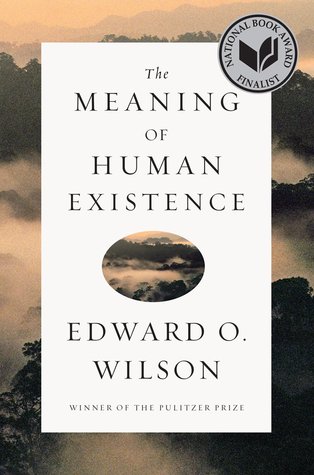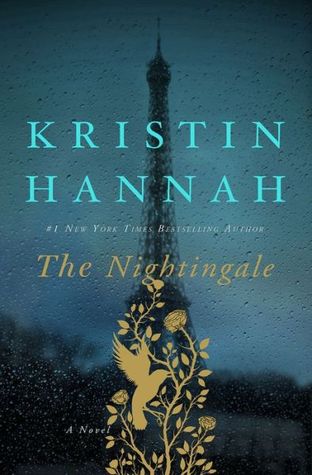Looking for an engrossing, entertaining or fluffy summer read? Check out some of the titles our patrons have recommended below. Some new, some old, some poignant, others pure entertainment, all noteworthy.
 “The Meaning of Human Existence” E.O. Wilson
“The Meaning of Human Existence” E.O. Wilson
How did humanity originate and why does a species like ours exist on this planet? Do we have a special place, even a destiny in the universe? Where are we going, and perhaps, the most difficult question of all, “Why?”
In The Meaning of Human Existence, his most philosophical work to date, Pulitzer Prize–winning biologist Edward O. Wilson grapples with these and other existential questions, examining what makes human beings supremely different from all other species. Searching for meaning in what Nietzsche once called “the rainbow colors” around the outer edges of knowledge and imagination, Wilson takes his readers on a journey, in the process bridging science and philosophy to create a twenty-first-century treatise on human existence—from our earliest inception to a provocative look at what the future of mankind portends.
Continuing his groundbreaking examination of our “Anthropocene Epoch,” which he began with The Social Conquest of Earth, described by the New York Times as “a sweeping account of the human rise to domination of the biosphere,” here Wilson posits that we, as a species, now know enough about the universe and ourselves that we can begin to approach questions about our place in the cosmos and the meaning of intelligent life in a systematic, indeed, in a testable way.
Once criticized for a purely mechanistic view of human life and an overreliance on genetic predetermination, Wilson presents in The Meaning of Human Existence his most expansive and advanced theories on the sovereignty of human life, recognizing that, even though the human and the spider evolved similarly, the poet’s sonnet is wholly different from the spider’s web. Whether attempting to explicate “The Riddle of the Human Species,” “Free Will,” or “Religion”; warning of “The Collapse of Biodiversity”; or even creating a plausible “Portrait of E.T.,” Wilson does indeed believe that humanity holds a special position in the known universe.
The human epoch that began in biological evolution and passed into pre-, then recorded, history is now more than ever before in our hands. Yet alarmed that we are about to abandon natural selection by redesigning biology and human nature as we wish them, Wilson soberly concludes that advances in science and technology bring us our greatest moral dilemma since God stayed the hand of Abraham. ~Goodreads
 “The Birth of Rock and Roll” Jim Linderman
“The Birth of Rock and Roll” Jim Linderman
“Awesome!!! WWII in France. The best book I have read in a long time!”
In the quiet village of Carriveau, Vianne Mauriac says goodbye to her husband, Antoine, as he heads for the Front. She doesn’t believe that the Nazis will invade France…but invade they do, in droves of marching soldiers, in caravans of trucks and tanks, in planes that fill the skies and drop bombs upon the innocent. When France is overrun, Vianne is forced to take an enemy into her house, and suddenly her every move is watched; her life and her child’s life is at constant risk. Without food or money or hope, as danger escalates around her, she must make one terrible choice after another.
Then comes a call that changes everything: Night Watch is summoned to the four a.m. fatal slashing of a man in Penn Station, and this time Billy’s investigation moves beyond the usual handoff to the day tour. And when he discovers that the victim was once a suspect in the unsolved murder of a twelve-year-old boy-a savage case with connections to the former members of the Wild Geese-the bad old days are back in Billy’s life with a vengeance, tearing apart enduring friendships forged in the urban trenches and even threatening the safety of his family. Razor-sharp and propulsively written, The Whites introduces Harry Brandt-a new master of American crime fiction.~Goodreads







